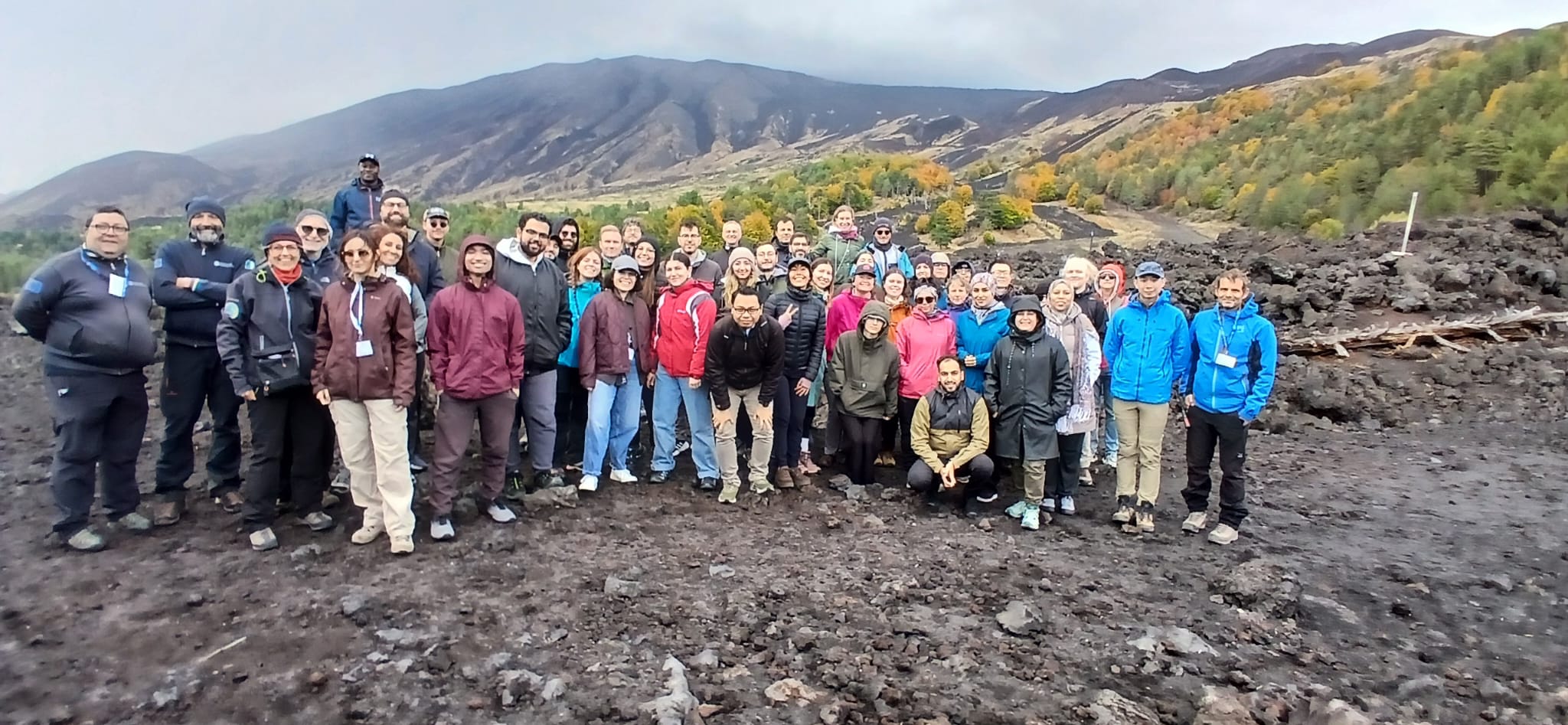Almost forty trainees, from PhD students to early-career researchers, came together in Catania, from 16 to 23 October, exploring novel observation technologies on solid earth and ocean science
An intensive week of lectures, hands-on activities, and field trips has just concluded at the Geo-INQUIRE “Eastern Sicily Test Bed” Summer School “Novel technologies and observing systems for geohazard and environmental monitoring: integrated approach of the Eastern Sicily test bed”.
The event, which brought together 38 trainees (PhD students, Postdoctoral fellows, and early-career scientists) with a notable achievement in reaching gender balance (19 female trainees and 10 female experts), aimed to explore the novel technologies and critical interface between solid earth and ocean sciences in order to foster “cross-fertilization” between the two scientific domains.
Fig. 1: Geo-INQUIRE summer school, group picture during the field trip to Mt. Etna. Credit: INGV
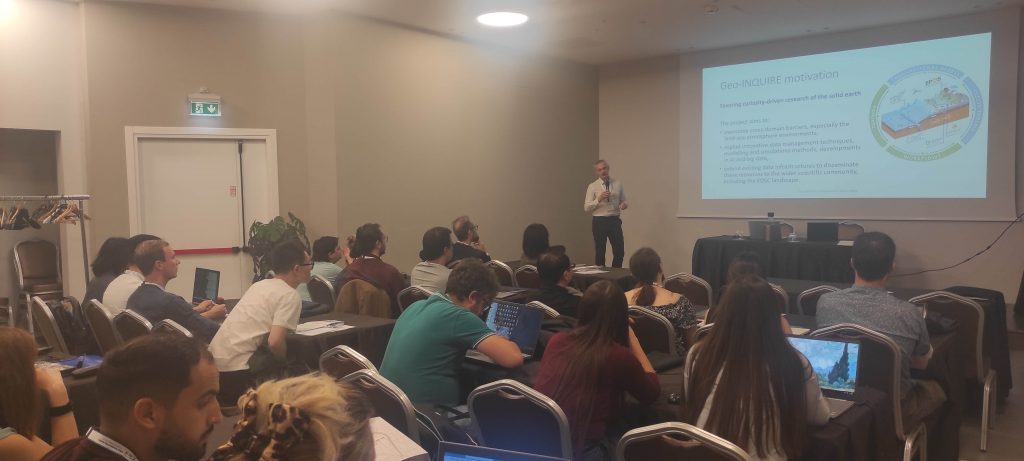
Fig. 2: Mariusz MAJDAŃSKI Institute of Geophysics – Polish Academy of Sciences, presenting Geo-INQUIRE project during the opening session of the summer school. Credit: Kasia Strycka, IG PAS
The summer school garnered exceptional international interest: the trainees, selected from over one hundred applications submitted, came from universities and research institutions based in 19 countries (Austria, Croatia, Denmark, France, Germany, Greece, Hungary, Iran, Ireland, Italy, Morocco, Netherlands, Poland, Portugal, Saudi Arabia, Spain, Türkiye, United Kingdom, and United States).
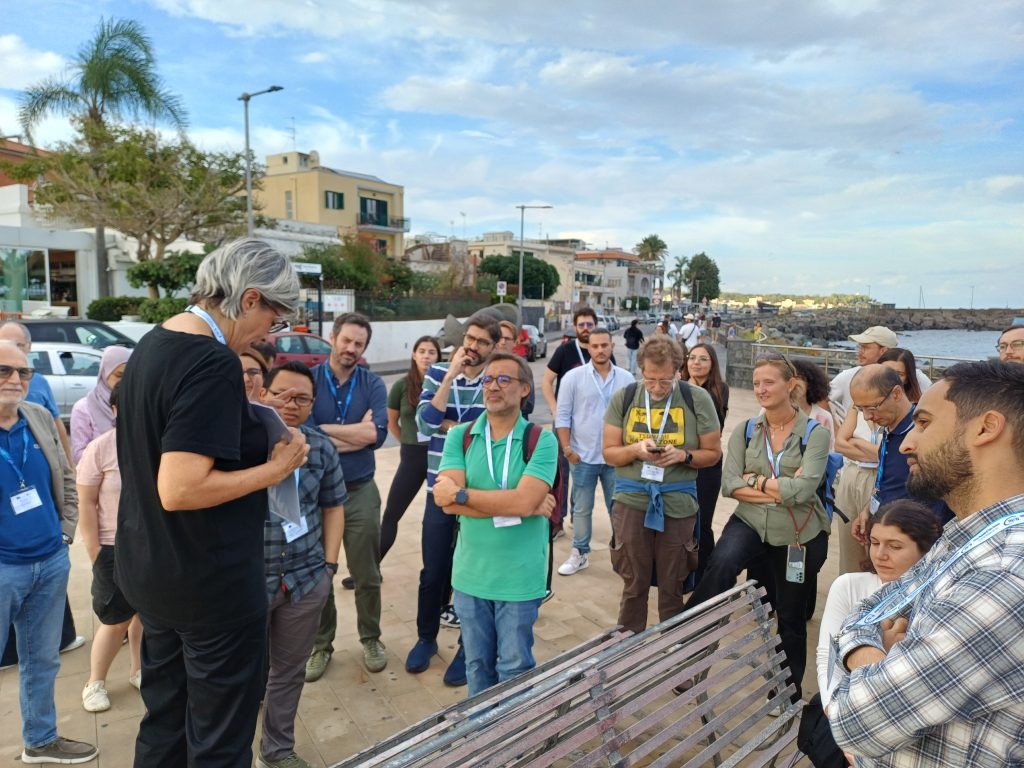
Fig. 3: Rosanna Corsaro, INGV-Osservatorio Etneo, while she was explaining the origin of the Cyclopean Islands, in front of Acitrezza harbour. Credit: Mariusz Majdański, IGF PAS
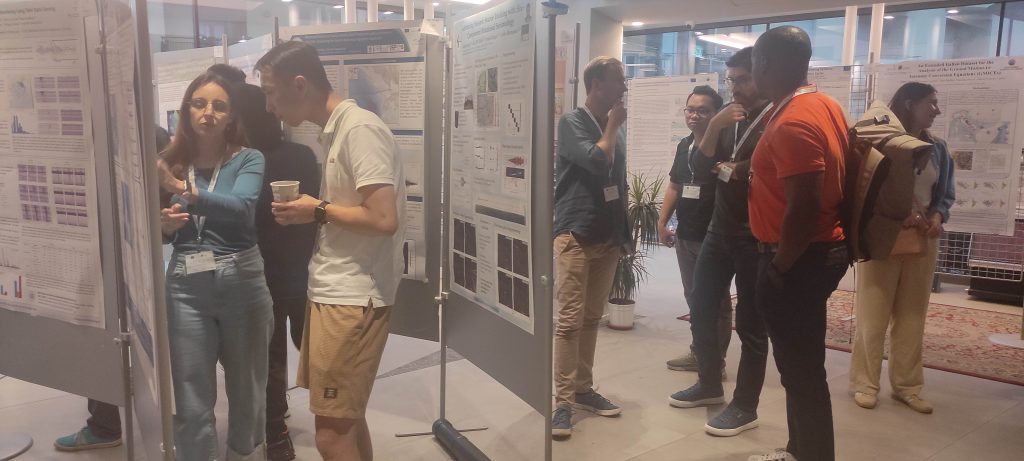
Fig. 4: Trainees during the poster session. Credit: EMSO
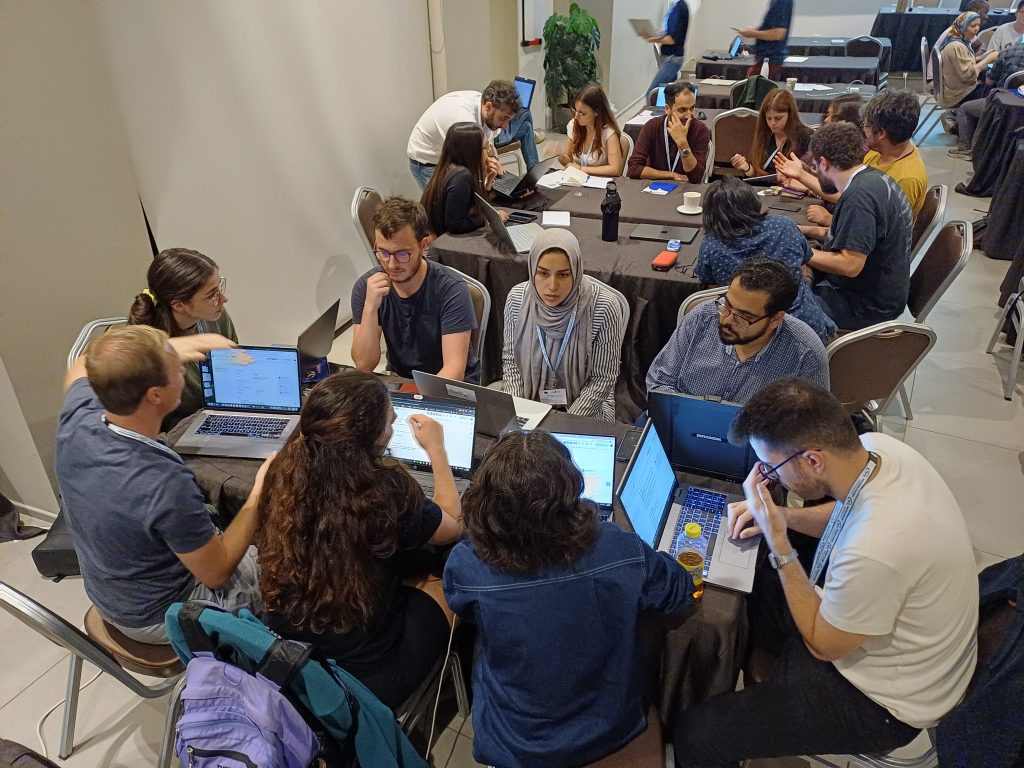
Fig. 5: Trainees during the preparation for the pint of science session. Credit: Mariusz Majdański, IGF PAS
The intensive agenda featured four days of lectures and hands-on activities focusing on Fiber Optic Sensing, Sensors and Observation systems for environmental monitoring, and Research Infrastructures (RIs) Services and Geo-INQUIRE project’s objectives. The program has also included a poster and a “pint of science” sessions, which have provided opportunities for trainees to showcase their research, knowledge and skills. Complementing this training, the week has featured two full-day field trips, allowing participants to visit the INGV EPOS facilities at Mt. Etna and the INFN KM3Net facility in Capo Passero.
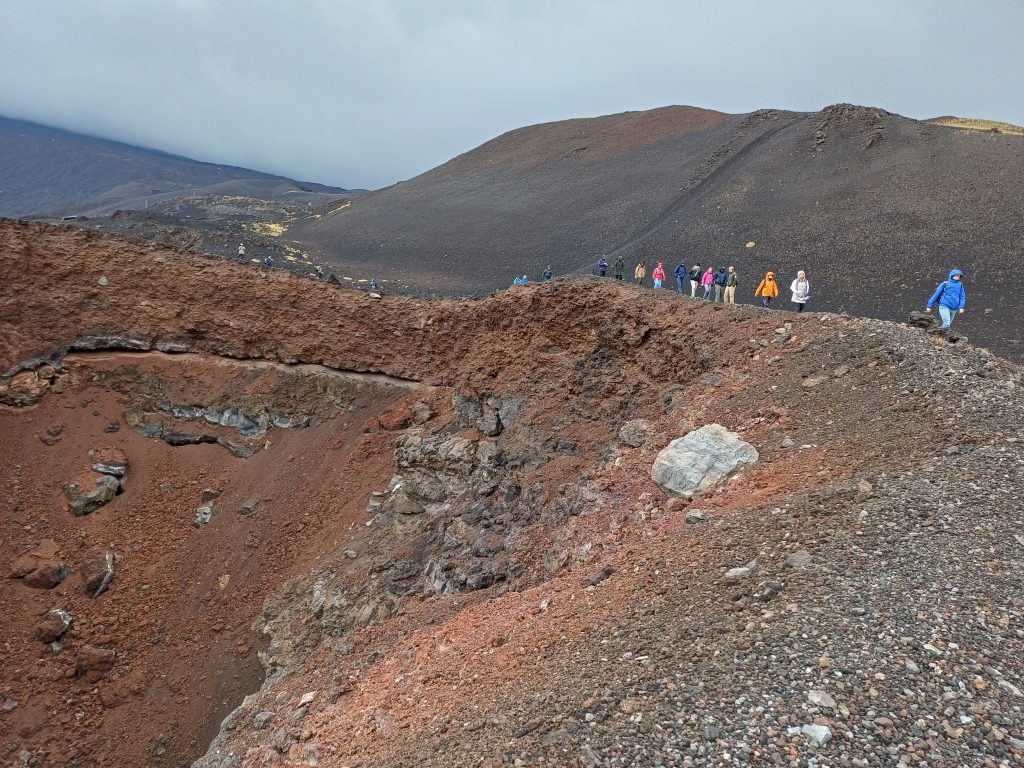
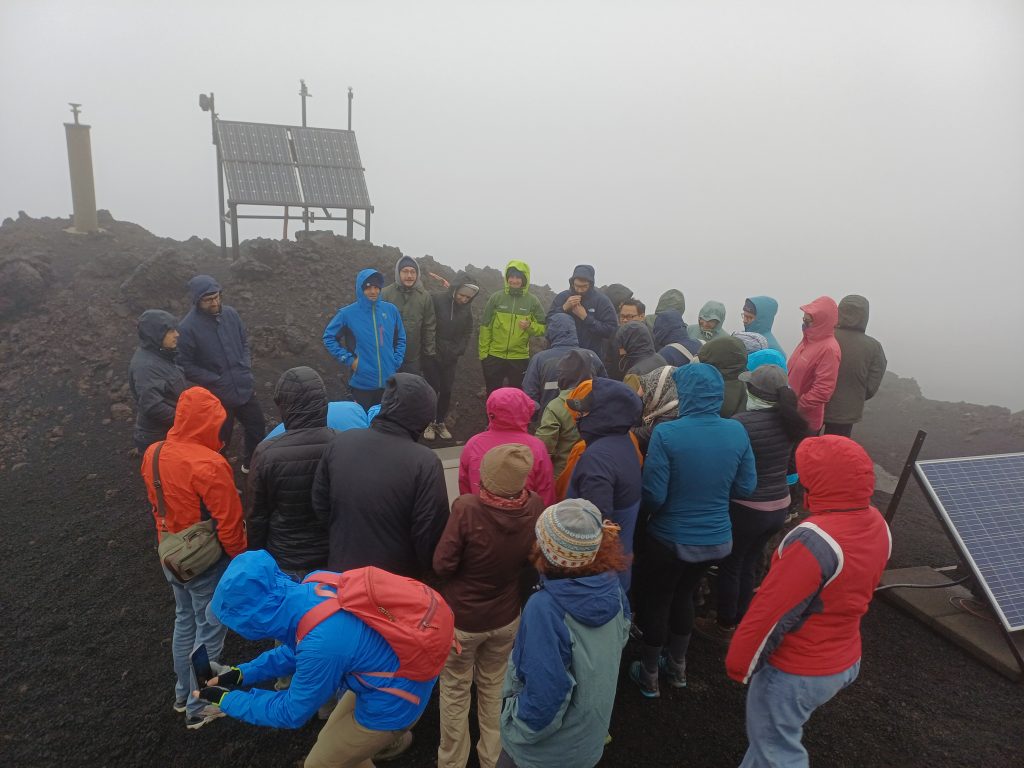
Fig 6-7: Field trip to Mt. Etna. Credit: IGF PAS
This summer school centred on the Eastern Sicily Test Bed, a key component offered within the Geo-INQUIRE project framework. The Eastern Sicily test bed includes facilities of the Etna Volcano Observatory (Etna VO), part of EPOS RI, and the Western Ionian Sea (WIS), part of EMSO RI. The motivation of such a concentration of RIs in Eastern Sicily stems from the unique feature of the area in being a natural laboratory for observing, monitoring and studying land and seafloor born geological and environmental processes. In fact, Mt. Etna volcano is the largest southernmost volcano in Europe and one of the world’s most intensively monitored volcanoes, and the scientists have the opportunity to collect a wide spectrum of volcanological, geophysical and geochemical data related to the continuous activity. Similarly, western Ionian basin is a key site for investigating water exchanges between the eastern and western Mediterranean, trophic chain and migratory routes of oceanic fauna and in particular cetaceans.
The Summer School was jointly organized by Giuseppe Puglisi and Gilda Currenti (INGV-OE), Giorgio Riccobene (LNS-INFN), Laura Beranzoli (INGV-RM2, EMSO), Sara Pero (EMSO) within the framework of the Geo-INQUIRE Project’s WP9 (Fostering cross-disciplinary research), funded by the European Commission under the HORIZON-INFRA-2021-SERV-01 call (Grant no. 101058518).
The research contributions from the participants have been compiled in the “Miscellanea Volume” which is available here: https://editoria.ingv.it/miscellanea/2025/miscellanea99/
To learn more about the project, visit: https://www.geo-inquire.eu/
Presentation material will be uploaded here.

